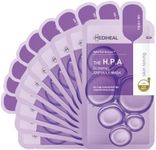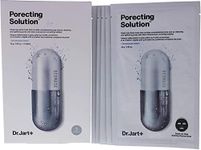Buying Guide for the Best Korean Face Masks
Korean face masks, also known as sheet masks, have become popular for their ability to deliver targeted skincare benefits in a convenient and easy-to-use format. When choosing a Korean face mask, it's important to consider your skin type, your main skin concerns, and the ingredients that will best address those needs. Understanding the key specifications will help you select a mask that fits your routine and delivers the results you want.Mask MaterialThe material of a Korean face mask refers to what the sheet itself is made from, such as cotton, hydrogel, or bio-cellulose. This is important because the material affects how well the mask fits your face and how effectively it delivers the serum to your skin. Cotton masks are common and comfortable, hydrogel masks stick closely and feel cooling, while bio-cellulose masks offer a snug fit and are often used for more intensive treatments. If you want a basic, everyday mask, cotton is a good choice. For a more luxurious or intensive experience, try hydrogel or bio-cellulose.
Key IngredientsKey ingredients are the active components in the mask's serum, such as hyaluronic acid, vitamin C, snail mucin, or tea tree oil. These ingredients are important because they target specific skin concerns like hydration, brightening, soothing, or acne control. To navigate this, look for ingredients that match your skin's needs: hydrating ingredients for dry skin, calming ingredients for sensitive skin, or clarifying ingredients for oily or acne-prone skin. Your main skin concern should guide your choice of ingredients.
Intended Skin ConcernThe intended skin concern is what the mask is designed to address, such as moisturizing, brightening, anti-aging, or soothing. This is important because using a mask tailored to your concern will give you the best results. Masks are usually labeled with their main benefit, so you can easily find one for hydration, radiance, firming, or calming. Think about what your skin needs most at the moment and choose a mask that targets that issue.
Serum Type and TextureSerum type and texture refer to whether the mask is soaked in a watery, gel-like, or creamy serum. This matters because different textures feel different on the skin and can be more suitable for certain skin types. Watery serums are lightweight and good for oily or combination skin, while creamy or thicker serums are more nourishing for dry or mature skin. If you prefer a light, refreshing feel, go for watery serums; if you want deep moisture, choose creamier options.
FragranceFragrance in face masks can make the experience more pleasant, but it can also irritate sensitive skin. Some masks have a strong scent, while others are fragrance-free. If you have sensitive or allergy-prone skin, it's best to choose fragrance-free masks. If you enjoy a sensory experience and your skin tolerates it, a lightly scented mask can be enjoyable.
Mask Fit and SizeMask fit and size refer to how well the mask conforms to your face and whether it covers all the areas you want to treat. A good fit ensures the serum is evenly distributed and absorbed. Some masks are designed for smaller or larger faces, and some have extra cuts or flaps for a better fit. If you find masks often slip or don't cover your face well, look for options that mention a universal or adjustable fit.

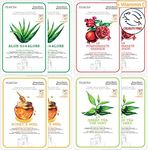
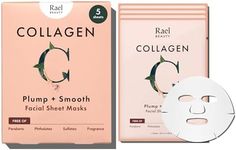
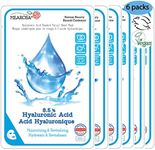
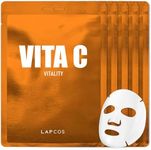
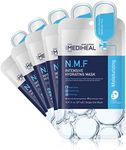
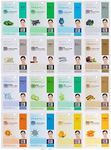
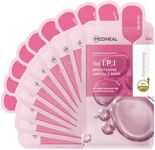
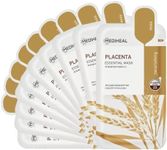
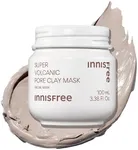
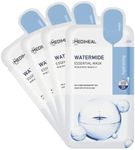
![MEDIHEAL Official [Korea's No 1 Sheet Mask] - Tea Tree Essential Blemish Control Mask (5 Masks)](https://images-proxy.bestreviews.guide/JKhxFBMCCPUUkaJbrH6LOJnjiTQ=/0x150/https://m.media-amazon.com/images/I/41s9xYHj+wL._AC_CX679_.jpg)
![[THEFACESHOP] Real Nature Face Mask Sheets (15 Treatments), Full Face Masks Peel Off Disposable Sheet (Pack of 15)](https://images-proxy.bestreviews.guide/WcKGC5phmsu93zBhSctMEE_eV4w=/0x150/https://m.media-amazon.com/images/I/41mCas-bUuL._AC_CX679_.jpg)
